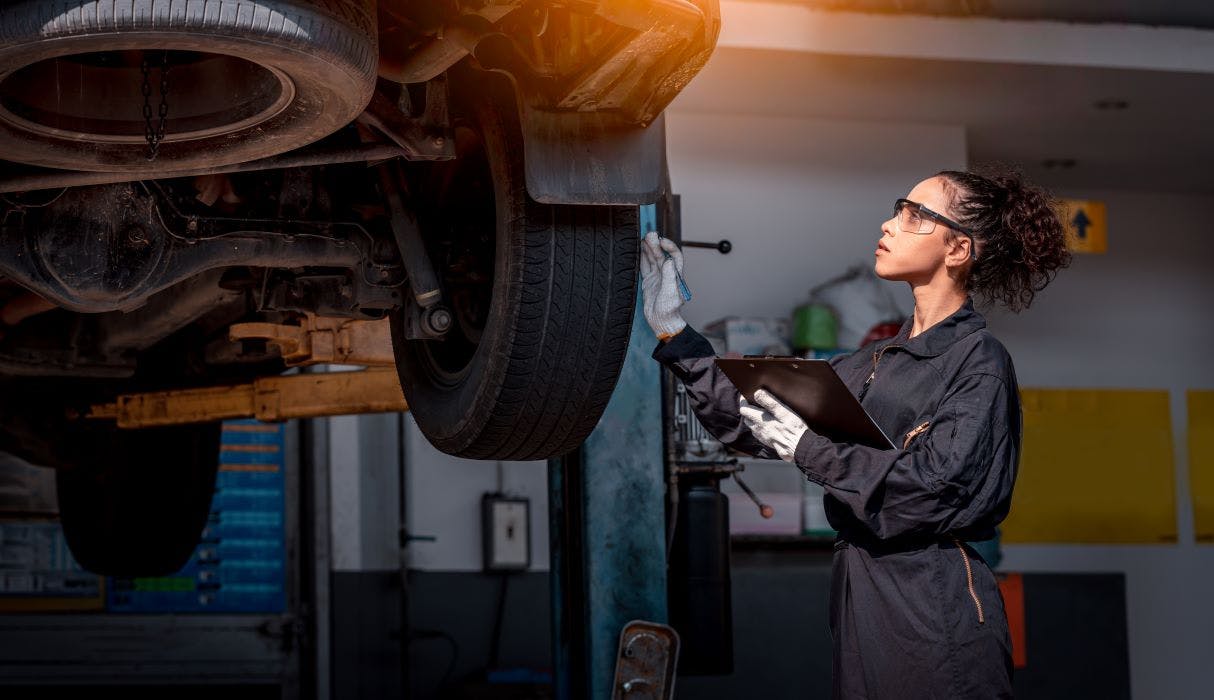From factory floors to corporate boardrooms, the automotive industry has long been a male-dominated field.
In 2020, women accounted for only 24% of the auto manufacturing workforce, as reported by the U.S. International Trade Commission.
This ongoing disparity highlights the critical need to understand the root causes and implement strategies for creating a more inclusive and sustainable future for the industry.
“Allison Grealis, founder and president of the Women in Manufacturing Association, noted, “People don’t stay at organizations where they don’t see themselves. If people don’t see diverse individuals making up leadership teams and boards of directors, they likely will question, ‘Is this a forever place for me?’”
This lack of gender diversity continues to be a significant barrier as automakers strive to attract and retain manufacturing talent.
This issue is particularly urgent as the transition to electric vehicles (EVs) demands massive factory expansions and workforce growth.
“The automotive business is going through a massive transformation right now,” said Jody Stidham, managing director for Deloitte’s global automotive practice. “This is the most opportune time for creating opportunities for women.”
New technologies such as software-defined vehicles, advanced battery systems, and EV charging solutions are reshaping the industry, creating a demand for diverse perspectives to address the evolving landscape and shifting consumer preferences, Stidham added.
In 2019, women accounted for 62% of new vehicle purchases in the U.S., according to the International Trade Commission.
Enhancing women’s representation across all stages of production could help automakers connect more effectively with this key consumer demographic.
“Companies have realized that being homogenous in terms of [their] workforce is not beneficial to the bottom line,” Grealis explained. “Diversity of thought and talent is critically important for company success.”
Despite this recognition, a 2020 Deloitte industry survey revealed that 64% of women identified the lack of diversity, equity, and inclusion (DEI) as the primary issue discouraging people from pursuing automotive careers, a concern ranked far lower by men.
Women Need a Roadmap to Success
In recent years, women have made inroads into roles such as service technicians and mechanics.
However, many women later pivot to other industries, often citing unclear recruiting practices, insufficient representation, and a lack of role models, according to Joanna Cooper, general manager of Daimler Truck’s Mount Holly plant.
Cooper emphasized the need for systemic changes, such as diversifying candidate pools and creating leadership development programs to facilitate career advancement. Leadership must also challenge the status quo and embrace cultural inclusivity, she added.

Key Statistics:
- 24%: Women’s share of the automotive manufacturing workforce as of 2020.
- 62%: The percentage of new vehicle purchases made by women in the U.S. in 2019.
Grealis echoed the importance of career development, urging manufacturers to invest in initiatives that nurture diverse talent. “Career advancement opportunities are central to retention,” she said.
Toyota North America is one example of a company taking steps to improve representation. Each manufacturing site runs its own inclusion-focused programs.
Anthony Allen, group manager of talent acquisition strategy at Toyota Motor North America, highlighted the company’s success in recruiting women by sharing employee testimonials via video.
“Hearing directly from those working in the various manufacturing jobs Toyota recruits for helps prospective hires envision new possibilities. We have seen how there is a power in ‘seeing’ yourself,” Allen said.
Grealis pointed out that misconceptions about modern manufacturing persist, which further hampers recruitment.
“Modern manufacturing needs more brain than it needs brawn,” she said. “The most successful companies develop strong, thoughtful relationships with educational institutions.”
Addressing Flexibility and Childcare
Flexibility remains a top concern for women in manufacturing, including the automotive sector.
Childcare access and affordability are critical issues, particularly for manufacturing roles that often require fixed, in-person shifts.
Many companies are beginning to invest in onsite childcare and adjust shift schedules to better accommodate parents.
Toyota, for instance, offers multiple shift options at its manufacturing facilities and subsidizes 24-hour childcare services at two locations in Indiana and Kentucky.
“We continue to focus on efforts to provide shift flexibility in all roles in manufacturing which improves work-life balance for all team members, but we hope it will also attract more women,” Allen said.
Efforts by organizations like Toyota aim to shift the narrative, framing childcare as a universal issue rather than a challenge faced exclusively by women.
However, a 2022 Manufacturing Institute study revealed that women report a lack of flexibility and childcare support as major obstacles at a much higher rate than men.
Still, Stidham believes automakers are progressing. “We just need to continue on that trajectory and make sure that it is part of every business decision going forward,” she said.

